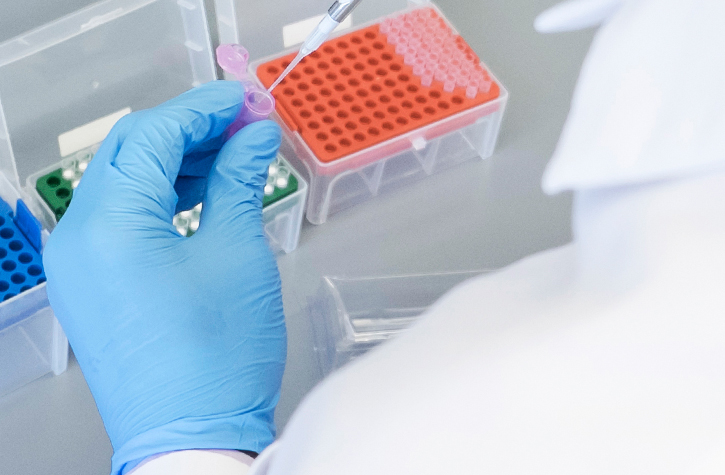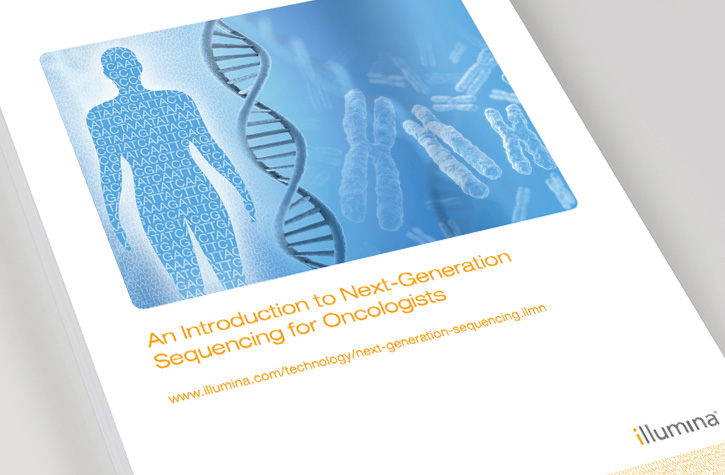NGS in Oncology
This partnership is personal
Genomic solutions to change how cancer will be identified and treated

Benefits of NGS in Oncology
As genomics-focused pharmacology begins to play a greater role in cancer treatment, next-generation sequencing (NGS) has emerged as a valuable method for obtaining a deeper and more accurate look into the molecular underpinnings of individual tumors. With targeted therapies becoming the new standard of care in oncology, NGS-driven companion diagnostics are widely seen as driving the selection of treatments to optimize patient outcomes in the future.
Compared to traditional methods, NGS offers advantages in accuracy, sensitivity, and speed that has the potential to make a significant impact on the field of oncology. Because NGS can assess multiple genes in a single assay, it eliminates the need to order multiple tests to identify the causative mutation.
This multigene approach decreases the time to answer, providing a more economical solution and reducing the risk of exhausting precious clinical samples. In addition, NGS can provide high sensitivity, enabling the detection of mutations present at as little as 5% of the DNA isolated from a tumor sample.
NGS has the potential to change the future of oncology and advance the promise of personalized medicine. We invite you to learn more by examining the resources collected here.

Introduction to NGS in Oncology
Learn more about how NGS technology works and the advantages it offers over traditional methods in this in-depth introduction tailored to molecular pathologists.
View Intro for Pathologists
Identifying RET Alterations in Non-Small Cell Lung Cancer
Jaclyn Hechtman, MD, Associate Attending Pathologist at Memorial Sloan Kettering Cancer Center, discusses the relevance of RET alterations in non-small cell lung cancer and the pros and cons of different technical approaches to identify RET fusions and single-nucleotide variants.
Comprehensive Genomic Profiling (CGP)
This next-generation sequencing approach consolidates hundreds of cancer-related biomarkers, including different variant types, into a single assay. Explore the benefits and find out how it compares to other common cancer NGS methods.
Cancer Biomarkers
Recent years have seen a rapid increase in the number of cancer biomarkers with associated targeted therapies. As the number of biomarkers increases, it is critical to find ways to maximize the ability to match patients with appropriate molecular treatment regimens.

NGS Workflow Finder
Take the guesswork out of your next workflow. The NGS Workflow Finder provides personalized solution recommendations and resources so you can sequence with confidence.
Find your NGS workflow todayOncology News and Interviews

How one family’s cancer story turned into hope for millions
Multiple cancer diagnoses and a shared hereditary gene spurred Barbara Van Hare’s family to launch the Rare Cancer Research Foundation
Read article
FMRI achieves higher efficiency in genomic research with Illumina’s new exome enrichment
Ms. Sookyoung Kim, the Chief Researcher, Future Medicine Research Institute discusses the results of her evaluation of Illumina DNA Prep with Exome 2.0 Plus Enrichment.
Read Interview
Precision oncology at your community’s doorstep
Illumina is expanding the power of genomics into community cancer care—maximizing therapeutic options for more patients
Read articleApplications of Precision Medicine
Learn about the growing uses of precision medicine in a broad range of areas, from cancer to genetic risk assessment, pharmacogenomics, reproductive health, and more.

More Cancer-Related NGS Methods
Tumor Mutational Burden (TMB)
NGS can help clinical cancer researchers estimate TMB, identify neoantigens, and study innovative therapies to boost the immune response.
ctDNA Sequencing
NGS offers the sensitivity and specificity that clinical researchers need to detect low levels of circulating tumor DNA (ctDNA) in the bloodstream.
Cancer Epigenetics
Explore the benefits of NGS and microarrays for analyzing altered methylation patterns and other epigenetic changes in cancer.
